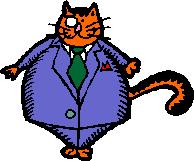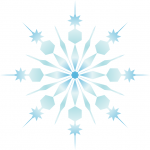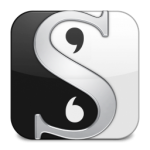I’ve been tagged by the wonderful Marsheila Rockwell to participate in “The Next Big Thing,” a writers chain letter designed to let fellow writers and readers know about the projects we’re working on. At the end of the post are links to more fabulous writers who will tell you next week what they have on their drawing boards.
So, for the questions:
What is the working title of your book?
I finished a rough draft on a novel I’m calling, “Fourteen,” during nanowrimo, plugging in the last 50K over the course of the month. It’s in the editing process, and I’m very excited about the story and the characters. I think I’m in love with my protagonist, though he’s too young for me. (Don’t tell my husband.)
Where did the idea for the book come from?
A very dark place. Much of the idea came from musings about how a person changes from a basically decent individual with high ideals into a crazed tyrant. What has to happen and how long would such a process take? As those thoughts churned, I found myself increasingly intrigued with the very complex villain that formed and the events that would make it possible for a hero to destroy him.
What genre does this fall under?
I’m currently calling it a fantasy, though what kind of fantasy I have yet to determine. It has 1930’s technology, which makes it too far in the past to be considered contemporary, and the world has magic that meshes with the more modern aspects. Some have suggested steampunk, but it doesn’t go there either. I like that it’s a unique meshing of concepts, but finding a subgenre is a challenge yet to be addressed. As always in my works, there will be some romance, and lots of action.
Which actors would you choose to play your characters in a movie version?
Like Marcy, I don’t really think of my characters in these terms, but to play the male protagonist, Fourteen/Gabrick, I think Kim Jaejoong with strawberry-blond hair (at least for looks. I have no idea how well he acts or speaks English). Jodelle Ferland or someone with similar looks would do well for Mariessa, the female protagonist. For the villain, Beht Han, we’d need an older version of the protagonist, but I don’t have anyone in particular in mind.
What is the one-sentence synopsis of the book?
Fourteen believes becoming the next emperor will grant him unequalled divinity and knowledge, but the choosing is a death sentence from which no one has ever escaped.
Will your book be self-published or represented by an agency?
That is yet to be decided. I’ll show it to my agent, the wonderful Cherry Weiner, and then we’ll go from there.
How long did it take you to write the first draft of your manuscript?
That’s a tough one. I left and came back to this story numerous times. Research was at least a solid month. The outlining phase was also a month or two, and the writing was probably three months, but that’s hard to say because I had other projects and some editing in there as well. I’d guess, start to finish, about five months, but it’s a guess.
What other books would you compare this story to within your genre?
I think it might compare in some ways to Brandon Sanderson’s Mystborn series. It has a hero’s journey, which is common in many fantasy novels, except instead of starting from poor and difficult circumstances our main protagonist comes from an environment of wealth and a puffed-up sense of his own self-importance.
Who or what inspired you to write this book?
The same ones who inspired me to write as a career are my motivators for putting any of my ideas into print, including this one-my family. It’s too long of a story to share here, but when my website is up and running, www.coletteblack.net, I’ll have the background of my late-in-life writing career on my About Me page. Look for it in the next couple of months.
What else about your book might pique the interest of readers?
Hot guys with years upon years of training in hand-to-hand combat, a buxom babe who’s good with a gun, and a girl with a temper, a lithe body, and an uncanny ability to throw knives. Add to that a world where only the elite own guns, motorcars, or have access to aeroplanes; the poor are relegated to solving conflicts with knives and swords, trying to survive a ruthless caste system; and every living thing leaves behind a stone of some power, whether it be a light in the night, an instant poison, or a prophecy that will change the world.
And now my taggees, in no particular order, whose own entrees (unless otherwise noted by them) will go up on or around 12/19:
1) I met S. James Nelson at WFC 2011 and discovered a great writer and good friend. Author of The Demigod Proving Grounds–a personal favorite, Keep Momma Dead, and winner of David Farland’s short story writing contest, placing his story in the anthology, “Nightingale Songs,” if you haven’t looked at his work, you should. Find him at www.sjamesnelson.com
2) A fellow superstars attendee, fun person to hang around with, and amazing fried-twinkie-eater (alas, we will see this no more), is Kim May. If you scroll down her blog a bit, you can see her testimonial from the Superstars Seminar we attended together. Go to www.ninjakeyboard.blogspot.com
Enjoy!






